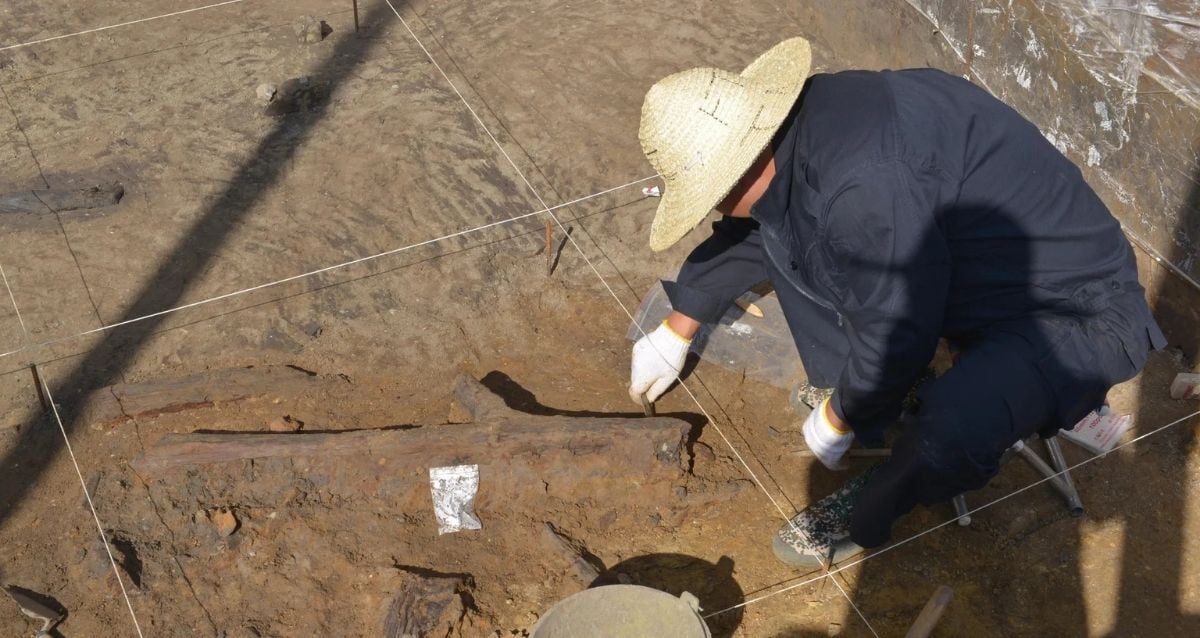T4K3.news
Ancient underwater city discovery raises historical debates
A recently rediscovered underwater city off Cuba's coast remains unexplored for over two decades.

An underwater city believed to be 6,000 years old remains unexplored, causing debate among scientists.
Discovery of ancient underwater city near Cuba presents new questions
In 2001, marine engineers Paulina Zelitsky and Paul Weinzweig announced finding a sunken city off Cuba's coast, featuring stone structures resembling pyramids and other buildings. Studies suggested the city could be over 6,000 years old, challenging established views of human history. Many researchers, however, remained skeptical, citing the geological implications of such a site sinking underwater. Despite public fascination and social media discussions, the underwater structures have not been examined since their discovery, which raises questions about academic support and potential political influences. Factors such as funding issues and skepticism from the scientific community have contributed to the city's neglect and lack of further exploration.
Key Takeaways
"It's a really wonderful structure which really looks like it could have been a large urban center."
Zelitsky expressed excitement about the potential significance of the discovered structures.
"It would be totally irresponsible to say what it was before we have evidence."
Zelitsky emphasized the need for further research before drawing conclusions about the structures.
"We've never seen something like this before, and we don't have an explanation for it."
Iturralde acknowledged the uniqueness of the underwater structures and the lack of scientific explanation.
"It would be cool if Zelitsky and Weinzweig were right, but the structures are out of time and out of place."
Faught questioned the implications of the findings, suggesting they contradict known human history.
The mystery surrounding the underwater city unveils a larger narrative about scientific inquiry, public fascination, and possible political barriers. This discovery, if legitimate, could revolutionize our understanding of human history and civilizations predating known timelines. However, the lack of follow-up studies highlights a troubling trend in which significant findings go uninvestigated due to skepticism or funding challenges. Beliefs in potential cover-ups among the public show a gap between scientific discussions and popular narratives, emphasizing the importance of transparency in research. It remains crucial for scholars to address these public sentiments by investigating such claims thoroughly to either validate or debunk them.
Highlights
- A sunken city could change everything we know about human history.
- Why has no one explored this supposed lost city further?
- Could this be evidence of civilizations long forgotten?
- History waits patiently while mysteries remain unexplored.
Concerns arise over further investigation into underwater structures
Despite public interest, significant factors such as funding challenges and skepticism from the scientific community have hindered any further exploration of the supposed lost city.
The mystery of the lost city prompts a call for renewed exploration and investigation.
Enjoyed this? Let your friends know!
Related News

Ancient Jewish community found in Cástulo

Ancient Child Skull May Change Our View of Human Evolution

Utility workers discover ancient pre-Incan tomb in Peru

Ceratosaurus fossil sells for $30.5 million at auction

Headless body found near Lisbon tourist attraction raises alarm

Octlantis showcases surprising octopus social behavior

Peaky Blinders creator claims gang would support Birmingham City

New Mole Fossil Found That Changes Evolution Understanding
